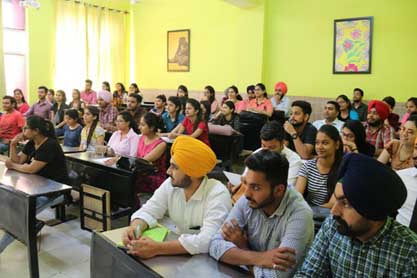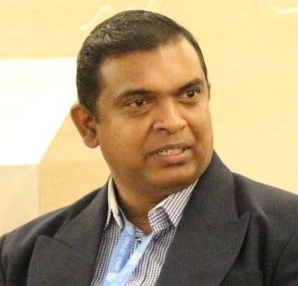Faultlines of New Education Policy in Karnataka, lessons for Punjab
The National Education Policy (NEP) of 2020, which replaced the NEP of 1986, is set to radically change the Indian education system, starting with improving the Gross Enrollment Ratio to 50% from the present 28%. NEP-2020 tries to bring in the US model of education. Karnataka became the first state to implement it at the Higher Education level, but without really working out a roadmap for it. The ideal process would have been to start implementation from the Primary Education level. Human rights activist and Principal, St Joseph’s Evening College, Bengaluru Dr Paul Newman presents the faultlines of the National Education Policy and its implementation in Karnataka. This has lessons for all -especially autonomous colleges and minority institutions in Punjab too. The fact that Punjab educationists, except a handful, are neither talking nor debating about it, is another matter.
![The National Education Policy (NEP) of 2020, which replaced the NEP of 1986, is set to radically change the Indian education system, starting with improving the Gross Enrollment Ratio to 50% from the present 28%. NEP-2020 tries to bring in the US model of education. Karnataka became the first state to implement it at the Higher Education level, but without really working out a roadmap for it. The ideal process would have been to start implementation from the Primary Education […]](https://www.theworldsikhnews.com/wp-content/uploads/2022/02/Telangana-Students-360x266.jpg)
MANY AUTONOMOUS COLLEGES had begun their admission process by March 2021 and started classes in July. On August 25, the government announced the launch of the New Education Policy. Autonomous colleges had conducted their Board of Studies to update and revamp their syllabi before the opening of the first-year degree programmes as per requirements.
In a hurried manner, the Karnataka State Higher Education Council (KSHEC), tasked with implementing the NEP, formed a ‘task force’ with no representation to members of the Christian minority group who run a number of top-class education institutions.
The Subject Expert Committees were formed and given a period of just 15 days to frame multiple sets of subject papers, and many were of the opinion that they could not do justice in that timeframe as it is a serious intellectual task. I am a member of the Board of Studies (BoS) of the Department of History of Bengaluru City University. The Subject Experts Committee in History had framed three Karnataka History papers out of four, for First Year BA. In the pre-NEP set-up, students of History had to study only one Karnataka History paper out of eight.
In the autonomous institutions as well as at a few top affiliated colleges, we get many non-Karnataka students who join our colleges with a dream to pursue civil services. They would not mind studying a paper on Karnataka history as it is important for them to study something about the state in which they have chosen to continue their higher education. But Karnataka history is not part of the All-India civil services exams. Karnataka aims to be an educational hub and cannot afford to restrict itself to one specialisation.

The vice-chairman of the KSHEC initially stated that the autonomous colleges will have no issues with framing their own syllabi as it had done so far but later insisted on a uniform syllabus to be followed throughout Karnataka. The syllabi of the autonomous institutions are of a higher level and the syllabi of the affiliated colleges are designed keeping in mind the students of semi-urban, rural and remote areas where the infrastructure they require is wanting.
The syllabi of the autonomous institutions are of a higher level and the syllabi of the affiliated colleges are designed keeping in mind the students of semi-urban, rural and remote areas where the infrastructure they require is wanting.
Imposing a uniform syllabus is a direct infringement on the whole autonomous structure even as the NEP speaks of granting more autonomy to colleges. The UGC Guidelines of 2018 are very clear on the framing of the syllabus.
The state government is selectively implementing the NEP. The full implementation of the NEP in letter and spirit would have been the ideal way of going about it, rather than packaging it in bits and pieces as there are grey areas – such as non-implementation of the status of degree-granting authority to the autonomous colleges, the question of Academic Bank of Credits, wherein as of today, a student has no option to change to a college of their choice outside the state, to cite a few examples.
Imposing a uniform syllabus is a direct infringement on the whole autonomous structure even as the NEP speaks of granting more autonomy to colleges.
The KSHEC also insisted that the admissions to the first-year undergraduate degree programme have to be done through the Unified University and College Management system (UUCMS) initiated by the Government of Karnataka. As the admissions had already been done by the autonomous colleges, the government stated that for this year they would accept the admissions but from next year onwards, the colleges would have to comply with the UUCMS.
The UUCMS takes away the rights of the colleges to select students of their choice as every college has its own aims, objectives, vision and mission, and selection is based on the institution’s requirements. Further, it infringes on the rights of the minority institutions as per Article 30(1) of the Constitution as observed by an 11-member bench of the Supreme Court in TMA Pai vs State of Karnataka to establish, determine procedure and method of admission and selection of students as well as administer educational institutions of their choice.
The Unified University and College Management System rules infringe on the rights of the minority institutions as per Article 30(1) of the Constitution as observed by an 11-member bench of the Supreme Court in TMA Pai vs State of Karnataka to establish, determine procedure and method of admission and selection of students as well as administer educational institutions of their choice.
The NEP’s proposal to cluster colleges and universities with a strength less than 3,000 is also not a step in the right direction, keeping in view the ambitious project to increase the GER to 50%. Again, institutions run by minorities will be affected and it once again discards Article 30(1). The implementing states should note that resources of the minority institutions are scarce and harnessed for the wellbeing of the downtrodden over many years and they should not be infringed upon.
The NEP model, which offers a four-year programme, has an ‘Exit and Entry’ option where a student can complete a full year’s class and quit with a certificate after one year, a diploma after two years, a degree after three years and an Honours degree after four years. This could create a lot of uncertainty in the planning of courses, workload of staff members, requirement of administrative and support staff.
Many of our minority students may exit the system without completing the degree for lack of funds or for the glamour of possessing a certificate/diploma which was not available earlier and is now made available under NEP.
Many of our minority students may exit the system without completing the degree for lack of funds or for the glamour of possessing a certificate/diploma which was not available earlier and is now made available under NEP.
It is not late for the KSHEC to review the implementation process of the NEP, accept the concerns of educationists and other stakeholders, and incorporate them to make Higher Education broad and universally acceptable to all sections of society, to make education joyful, robust and a happy learning experience for students of all sections of society, to make India a vibrant constitutional democracy with secular values that would usher in the development of the whole country without any disparity.
 Dr Paul Newman, Principal of St. Joseph’s Evening College, is an expert specialising in conflict resolution, right to self-determination, refugee studies and human rights issues. He was one of the four public speakers at the Permanent People’s Tribunal on Sri Lanka at Dublin. He attends the UN Human Rights Council at Geneva championing the cause of Nations fighting for Self Determination. In August 2018 he addressed the 1st Yazidi Genocide Conference.
Dr Paul Newman, Principal of St. Joseph’s Evening College, is an expert specialising in conflict resolution, right to self-determination, refugee studies and human rights issues. He was one of the four public speakers at the Permanent People’s Tribunal on Sri Lanka at Dublin. He attends the UN Human Rights Council at Geneva championing the cause of Nations fighting for Self Determination. In August 2018 he addressed the 1st Yazidi Genocide Conference.
This article first appeared in The Deccan Herald, Bengaluru.
